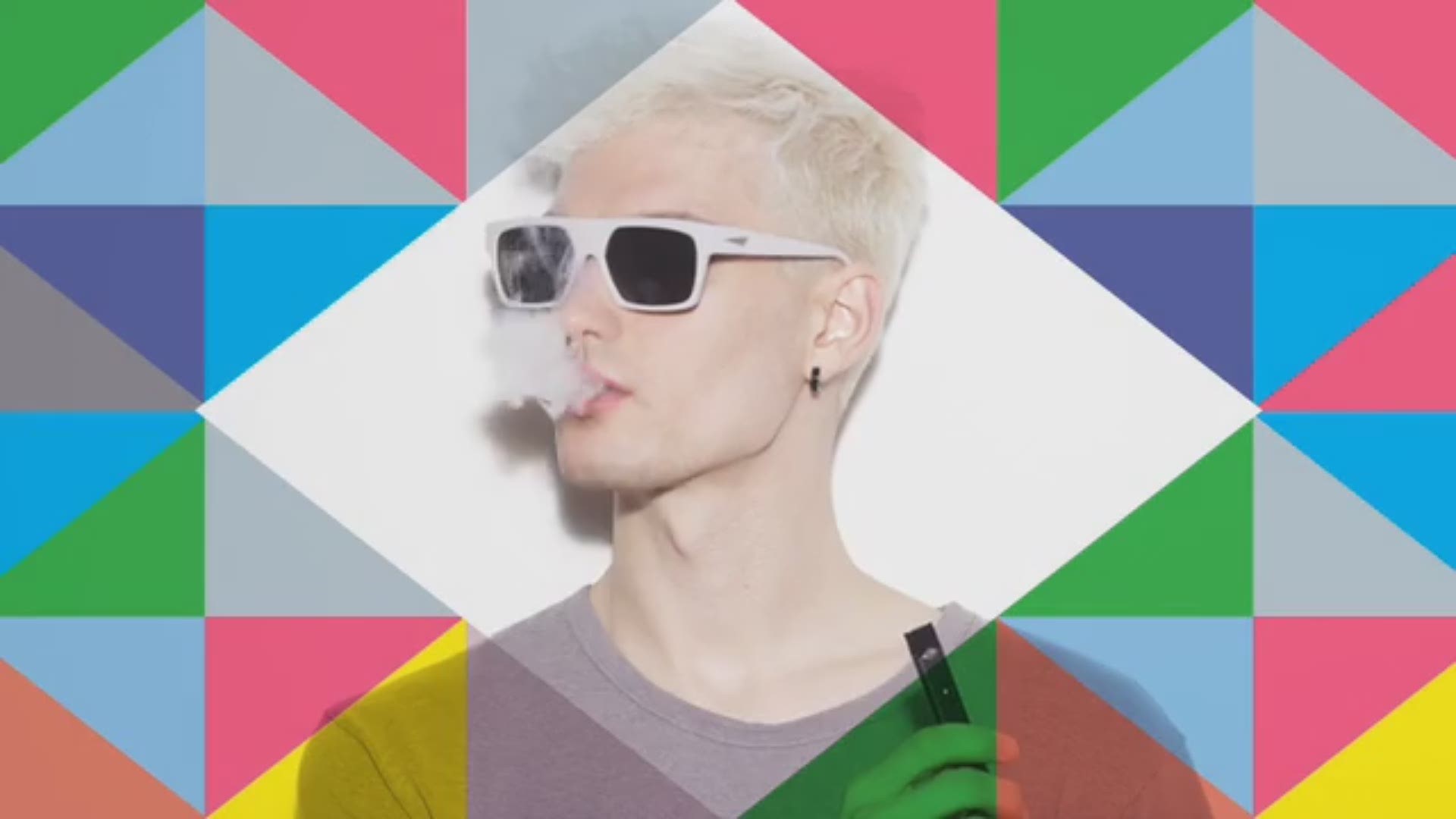Ferguson’s lawsuit asserts JUUL dedicated tens of hundreds of violations of the the Washington Point out Purchaser Security Act.
OLYMPIA, Clean. — Washington Attorney General Bob Ferguson filed a customer safety lawsuit on Wednesday from e-cigarette company JUUL.
The lawsuit assets that the corporation violated the state’s Buyer Defense Act by creating and internet marketing its products and solutions to appeal to minors and deceiving consumers about the addictiveness of its merchandise.
JUUL also unsuccessful to meet Washington state’s tobacco vapor product or service licensing necessities, Ferguson lawsuit asserts. The lawsuit promises that just about every sale of a JUUL unit from August 2016 until eventually April 2018 was unlawful in Washington state.
“JUUL set gains before folks,” Ferguson’s business stated in a information release. “Pushing unfair and deceptive internet marketing tactics pleasing to youth, the organization fueled a staggering increase in vaping between teens. JUUL’s perform reversed decades of development preventing nicotine addiction, and they need to be held accountable.”
Marketing targets underage end users, Ferguson’s business states
When JUUL released its items in 2015, it used the “Vaporized” campaign on significant social media platforms, including Twitter, Instagram and Facebook, Ferguson’s business office explained. The marketing campaign featured younger styles with bright shades.
The flavors highlighted in the campaign included mango, “Cool Cucumber,” “Cool Mint,” and “Crème Brule,” which manufactured the products and solutions more appleaing to youthful prospects, Ferguson’s business office claimed.
Relevant: Ban of flavored vape solutions ends in Washington condition
Ferguson’s business office claimed the corporation also encouraged its social media followers to voluntarily write-up about its products and solutions, selecting “brand ambassadors” chosen for their affect on social media platforms. These manufacturer ambassadors were being recruited due to the fact of their founded pursuing as trendsetters for youth.
JUUL’s ads usually copied themes from traditional cigarette adverts that ended up afterwards banned for their enchantment to youth, Ferugson’s business reported. It employed sharp patterns, vivid colours and young models, mimicking decades of comparable advertisements employed by tobacco manufacturers.
“JUUL understood its promoting ways fueled underage use of its goods, however took minimal to no action to end it,” Ferguson’s office environment wrote in the launch. “A 2018 study of JUUL’s Twitter viewers showed that 80 per cent of its followers have been between 13 and 20 several years previous. Many teenage buyers voluntarily posted about JUUL merchandise, such as images and videos exhibiting underage use of the merchandise.”
JUUL downplayed addictiveness of solution
Ferguson’s business office reported JUUL’s preliminary marketing and advertising of its products and solutions prevented mentioning that they contained nicotine. The company only began disclosing the actuality that its goods contained nicotine when the federal authorities essential that disclosure.
JUUL entered the current market with a 5% focus of nicotine, compared to most e-cigarette liquids on the market that experienced 1 to 2% nicotine concentration, Ferguson’s office reported. 3 p.c nicotine focus was considered higher and supposed for persons accustomed to cigarette smoking two packs of cigarettes per working day.
Connected: 39 states investigating Juul’s marketing and advertising of vaping items
JUUL illegally dispersed product for years without a license
For just about two decades, each and every solitary JUUL sale in Washington state was unlawful thanks to the firm’s failure to abide by basic licensing prerequisites, Ferguson’s business mentioned.
In August 2016, Washington imposed precise prerequisites for the distribution and delivery of vapor products and solutions into the condition. The organization was completely aware of the deadline for completing its licensing for JUUL products and solutions, corresponding with condition regulators about the application course of action, Ferguson’s workplace explained.
JUUL unsuccessful to finish the software procedure and did not acquire the required licenses till April 9, 2018, according to Ferguson’s workplace.
Tens of hundreds of Client Safety Act violations
Ferguson’s lawsuit asserts JUUL fully commited tens of hundreds of violations of the the Washington State Customer Protection Act, which prohibits unfair and misleading organization practices.
The Consumer Security Act lets a most penalty of $2,000 for every violations. By law, penalties go to the condition typical fund.
Ferguson’s lawsuit also seeks the surrender of unlawful revenue and asks the court to purchase JUUL to stop its “unlawful advertising ways.”
On Aug. 13, Ferguson filed a independent lawsuit in opposition to an online vaping retailer for promoting and shipping tobacco solutions in Washington without the need of verifying the ages of its buyers.
Similar: CDC confirms vitamin E acetate perhaps linked to vaping ailment outbreak




More Stories
Tech Gear for Hunters: Smart Add-Ons from Dive Bomb
Catch Up on the Latest Must-Read Business News
The Hidden Depths of OTC Trading in the Czech Republic